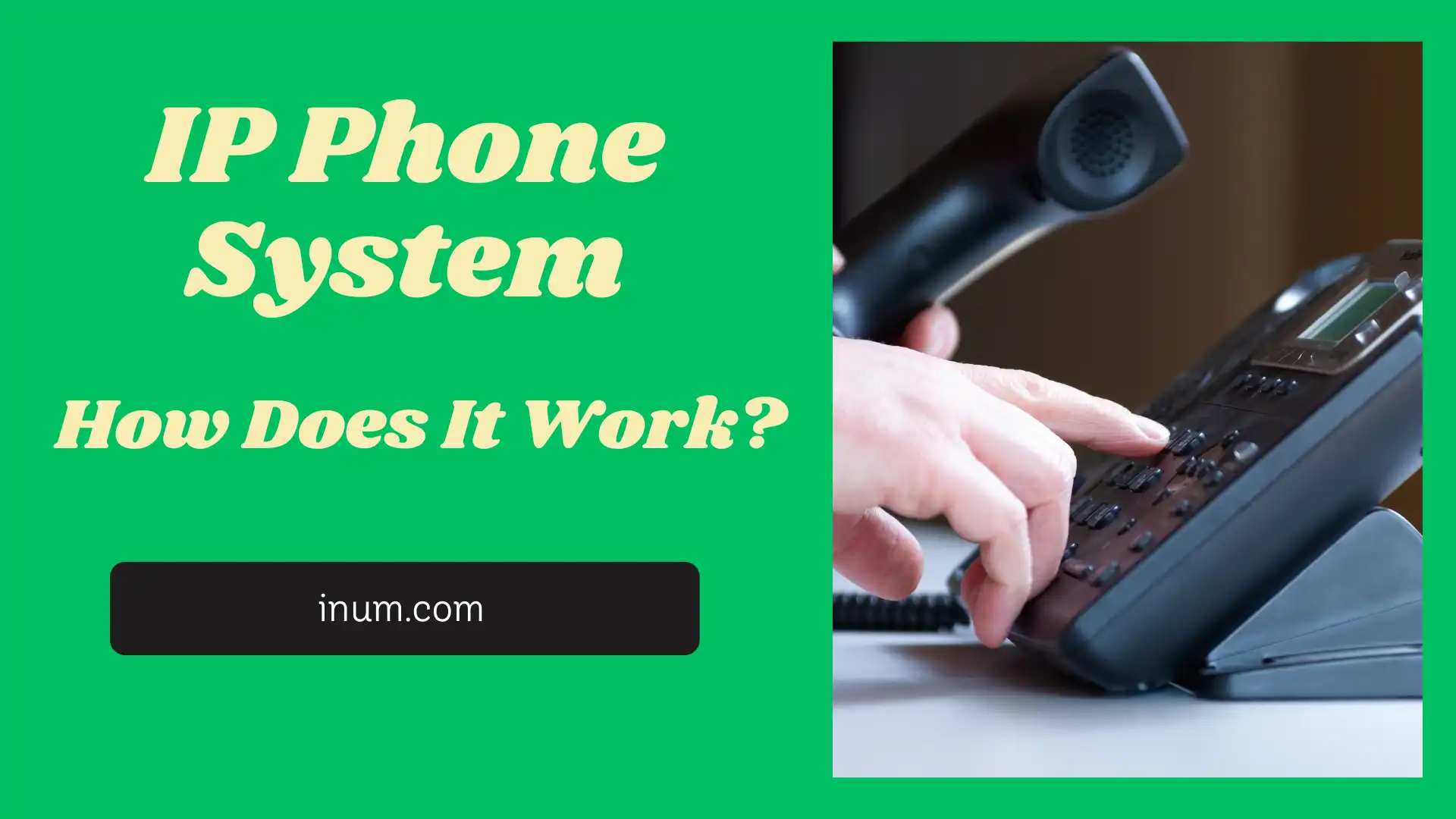Customer support is getting the most important factor for businesses. Your company may have the finest products, the most resourceful employees, and the best site user interface but it will not expand as rapidly as you desire it to be when your customers are unable to communicate with you comfortably and effectively.
It is here that SIP calling comes in. Amazon Web Services (AWS) conducted a study which found out that SIP calling can be depended upon in 99.9 percent of all cases. This is only one of numerous benefits that this specific phone system can bring you.
Although the usefulness of SIP calling is justified by statistics, enthusiastic reviews, and numerous positive adjectives, quite a variety of businesses continue to ask themselves what this technology is and how it operates.
In the following blog, we will discuss everything you need to know about SIP calling.
What Is SIP (Session Initiation Protocol)?
SIP or the Session Initiation Protocol is a protocol of communication that is based on the Internet. It is utilized in the creation, preservation and conclusion of communication sessions incorporating voice, video and messaging programs.
SIP communication protocol is a language that enables various devices to communicate with one another e.g. phones and computers. It is crucial in uniting individuals using voice calling, video calling, messaging and other real-time communication devices using IP networks.
What Is SIP Calling?
As we have already discussed, SIP is an abbreviation of Session Initiation Protocol. It can be described as a form of signaling protocol, by which various systems can use an internet connection (Wi-Fi or any other technology) to communicate with the aid of a SIP trunk or even a SIP channel. The types of shared information may differ, but the majority of companies prefer it to be phone and video calls.
SIP calling implies both SIP and VoIP technologies and therefore it is an excellent alternative to the traditional phone lines and PRI lines.
SIP calling can also be of immense benefits to your organization in as far as the security and ease of use is concerned in addition to lowering prices as well as the ability to use it on various devices.
How SIP Calling Works?
SIP calling is only possible using a SIP trunk a virtual phone line that is created using SIP technology. The best thing about it is that it allows direct connection, that is, it allows connecting PBX (Private Branch Exchange) to PSTN (Public switche network) without RPRIs (Primary rate interface) that would need to connect it to the old hardwired number, so that you can use the same and add an upgrade to the old system.
As the connection is established with the internet, SIP calling exploits the speed of its connection, regardless of the technology (Wi-Fi or not), which most likely is of the best quality in case you are working online.
In this way, handsets will be the only physical thing you would require.
The SIP has the knowledge on how to verify whether your recipient is free and in a position to receive such calls. It then also automatically disconnects once the conversation is over hence minimizes the overall expenses.
Benefits of SIP Calling
Here is the benefits of SIP calling :
i. It’s Easy
To start with, you do not have to build the entire network at all. With the help of SIP technology, you can easily use the same numbers that you used before and just continue making and receiving calls.
Not only that, but you will have access to all that with the help of the user-friendly interface of the online control panel. New and old phone numbers, redirecting, extensions, etc. will be your responsibility thus it will all fall in your hands.
SIP trunk will ensure that all the fundamental features will be centralized in a single machine and therefore it will be very easy and fast to train your employees.
ii. Scalability
Being cloud-based in the entire network, SIP calling will easily be tailored to the requirements of your business after you start using it. You can only make one call to your SIP provider and they will be okay to make changes, whether you are looking to save money or your organization is growing because most of the SIP providers have flexible billing, or better still, some companies give you the option to manage your entire SIP phone plan.
You do not have to spend on extra cables and installing complex and lengthy cables every time you employ someone. Not to add that SIP trunking will save you a lot of office space.
Expand as you expand, without necessarily having to attempt to foresee the future in order to be ready to have a phone ready whenever an employee is engaged.
iii. More Cheaper
The audio and video conferencing will be done using SIP technology which will save you a lot of money in the form of business phone bill. Above all, it does not require you to pay a specific amount of time that you spend on the phone, as a landline or mobile phone would require; SIP gives you what you can genuinely call unlimited calls.
In addition, it does not require any hardware to work and this implies that you will not need to utilize time and money on buying, setting up, and maintenance.
Making international calls (which are then counted as local calls) is particularly of great importance when it comes to cloud-based systems since it is all over the internet, so the international calls are also very expensive using a regular phone and thus are treated in the same way.
In addition, SIP-to-SIP calls tend to be free. You will not need to worry about how expensive it could be to set up the phone, instead, you will be able to concentrate on what you need to accomplish.
iv. More Reliable
Since the SIP calling technology operates on the internet, all that you need to worry about is the quality of the internet connection. You have, most likely, got it covered, given that the digital processes and availability are the primary keys to success in the modern world. With that, there is no need to worry about the quality of audio and video conferencing.
It will be even more enjoyable than on a normal phone. With the SIP communication protocol, calling technology has the ability to expand the frequency range and can increase the sample rate, thus improving the audio quality to the HD quality. As a result, you will not encounter any challenges in comprehending whoever is talking to you, which is of essence in the situation of communicating with customers or business associates.
In addition, using a conventional phone, you are at a risk of external issues – bad weather conditions power outages in the vicinity, or the collapse of the network of your provider. In your own SIP network, all you have to do is to ensure that your internet is operating.
And even during the outage of the power or another breakdown in your company, you will be able to divert the phone calls to other points or mobile phones.
v. Flexiblity
The SIP calls can be directed to most mobile and laptops such as analog desk phones and VoIP soft phones enabling employees to access the phone system wherever they are.
It is able to strengthen the productivity and efficiency better, and enable the workers and customers to interact with each other all around the globe by a device.
Such functions involve the ability to find out the availability and location of a certain person, media facilities, phone, and video call management, allowing emergency calls and instant messaging, conferences, etc.
Thus, the selection of a SIP calling system will contribute to you getting rid of at least some unnecessary software and hardware.
Final Words – SIP Calling
As you may see, SIP trunking can indeed change the internal and external communication of your business.
Its cost- effectiveness and affordability are the likely greatest benefit since reducing costs is something that is always considered by most companies without diminishing the quality of services provided. Nevertheless, effective communication which is clear and easy is also essential to the success of your organization.
SIP calling is certainly an aspect that can help your business in a great way. You do not want to lag behind with an old fashioned phone system. VoIP and SIP phone and video technologies are here to remain – there is no doubt about it. Therefore, the quicker you begin to move the transition, the better. Make SIP calls as early as you can to increase your productivity!
FAQs – SIP Calling
Q1. Who Can Use SIP Calling?
Well, it is particularly popular with small and medium-sized business owners. After installing the entire network, you will be enjoying the benefits of the decision, which will encompass low costs, quality of communication, and flexibility.
Q2. What Is an SIP Account?
It has your credentials and you can make and receive audio and video SIP calls through the internet with the assistance of the Voice over Internet Protocol technology.
Q3. What Is an SIP Address?
SIP equivalent of a conventional phone number is your SIP address. It resembles an email address and is individual to every user and hence there will not be confusion.
Q4. What Is an SIP Session?
The period during which data is transferred between devices is called an SIP session. In the case of traditional phone lines, this would be signaling.
Q5. What Is an SIP Initiation?
A SIP initiation can be described as the start, continuation and end of every session. With SIP trunking, this implies that the technology has full control of the entire process hence it is only effective when used.
Q6. What Is an SIP Protocol?
A SIP protocol is the rules that all devices abide by when communicating. In brief, it renders SIP trunks and calling functional and allows communication clearly and smoothly.
Read More : What Is Fixed VoIP? A Complete Guide to Fixed-Line Internet Calling
Read More : Calling Restrictions: What Does “Restricted Call” Mean on Your Phone?



